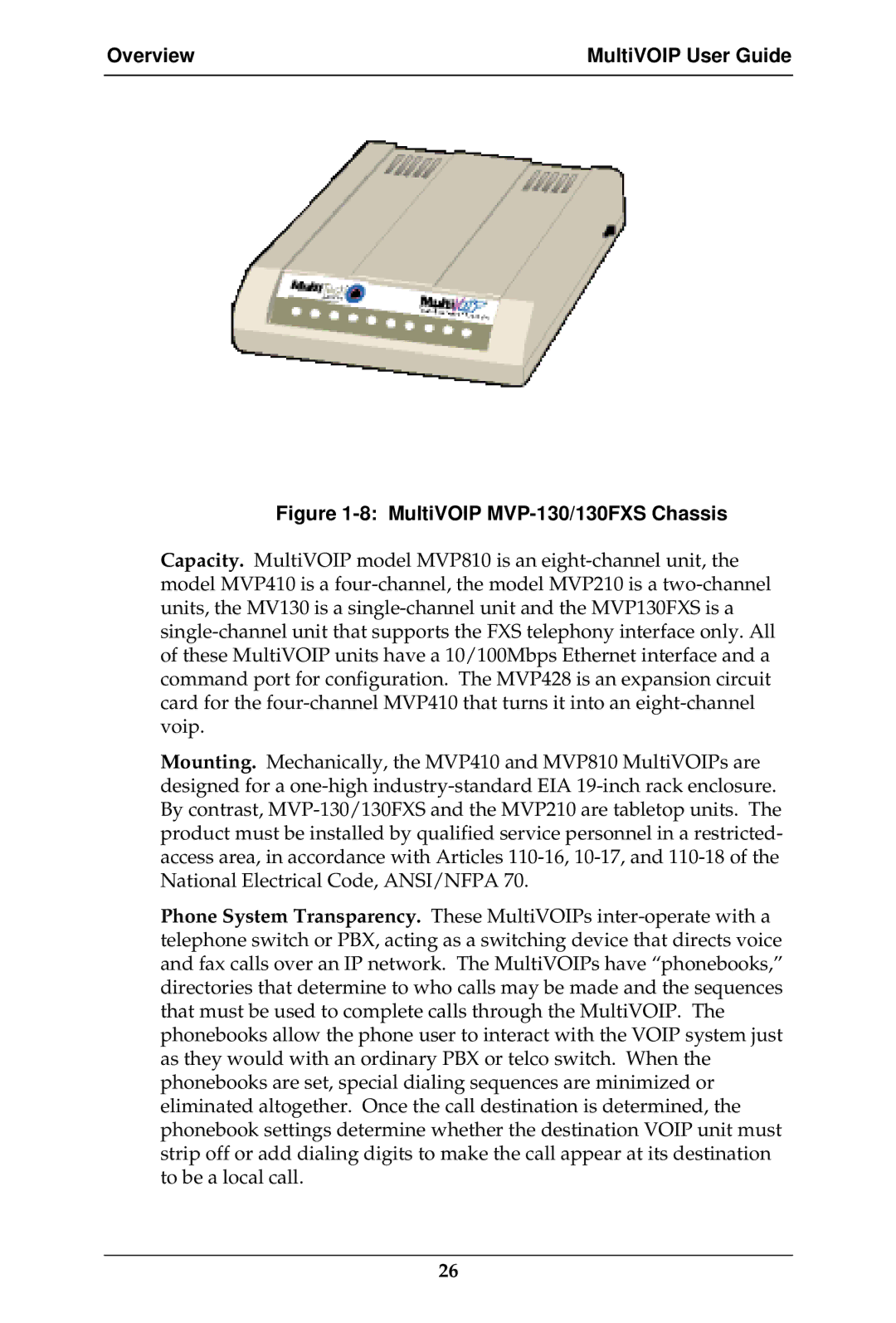
Overview | MultiVOIP User Guide |
| |
Figure 1-8: MultiVOIP MVP-130/130FXS Chassis
Capacity. MultiVOIP model MVP810 is an eight-channel unit, the model MVP410 is a four-channel, the model MVP210 is a two-channel units, the MV130 is a single-channel unit and the MVP130FXS is a single-channel unit that supports the FXS telephony interface only. All of these MultiVOIP units have a 10/100Mbps Ethernet interface and a command port for configuration. The MVP428 is an expansion circuit card for the four-channel MVP410 that turns it into an eight-channel voip.
Mounting. Mechanically, the MVP410 and MVP810 MultiVOIPs are designed for a one-high industry-standard EIA 19-inch rack enclosure. By contrast, MVP-130/130FXS and the MVP210 are tabletop units. The product must be installed by qualified service personnel in a restricted- access area, in accordance with Articles 110-16, 10-17, and 110-18 of the National Electrical Code, ANSI/NFPA 70.
Phone System Transparency. These MultiVOIPs inter-operate with a telephone switch or PBX, acting as a switching device that directs voice and fax calls over an IP network. The MultiVOIPs have “phonebooks,” directories that determine to who calls may be made and the sequences that must be used to complete calls through the MultiVOIP. The phonebooks allow the phone user to interact with the VOIP system just as they would with an ordinary PBX or telco switch. When the phonebooks are set, special dialing sequences are minimized or eliminated altogether. Once the call destination is determined, the phonebook settings determine whether the destination VOIP unit must strip off or add dialing digits to make the call appear at its destination to be a local call.

